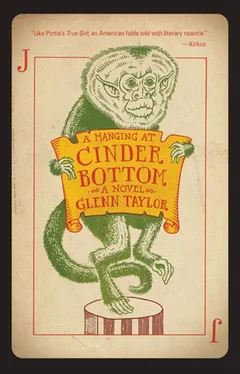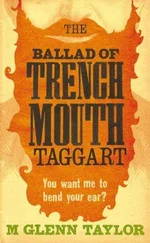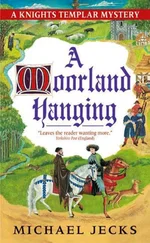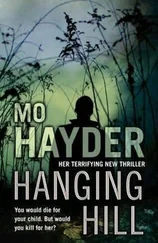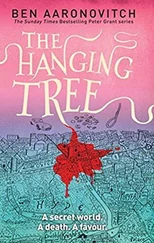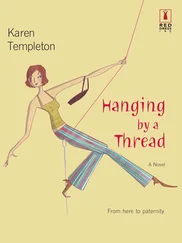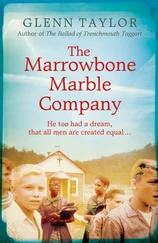A doctor at the hospital in Marion County had taken in the baby Rutherford. He’d found it prophetic that the abandoned boy shared his family’s surname. He and his wife raised the boy as best they could, short and strange and funny-looking among all those tall beautiful children bound for college and medical school after the war. At nineteen, Rutherford was angry and bound for southern West Virginia, where he followed a job his daddy secured him with the railroad. He worked as a station agent, and on a quiet night in 1876, he left a siding switch open to the main track at Welch, as was his custom. But on that night, such a lazy practice resulted in the collision of two loaded coal trains, one moving, one still and unhooked. Rutherford, then twenty years of age, had nearly leapt out of his brogans when the ruckus commenced, and when he ran from the station to the site of the mess, he found the locomotive’s engineer unconscious with a wide cut across his mouth. The man was on his side with his arms over his head, one hand gesturing by instinct to grab the brake. Without considerable thought, Rutherford looked around for witnesses, pulled the half-empty pint bottle of homemade wine from his jacket, poured some on the engineer’s face and open mouth, and stuck the bottle in his outstretched, grabbing hand. The man’s fingers, no doubt happy to have found what they thought was the brake, closed upon the bottle like the jaws of a vise.
Rutherford sucked on a plug of tobacco to cover the wine’s smell, and then he waited on the authorities. They didn’t like his story.
But a man at Keystone did. Henry Trent had heard of Rutherford, the little station agent with a big gun who moonlighted as a yard bull so he could beat tramps senseless for riding cars. If the tramp gave him a quarter or a necktie or a jackknife, he’d let him go with a singular whack from the butt of his legendary Colt revolver. It was custom-built with a twelve-inch barrel and sperm-whale-ivory grips. Rutherford claimed to have won the thing in a game of three-card monte run by a deaf pirate. The pirate had bought the gun in Hartford Connecticut from Samuel Colt himself, and later, when the deaf pirate happened upon a beached sperm whale in Beaufort, North Carolina, he’d pulled two of its teeth and fitted his ridiculous pistol with ivory.
Trent liked a young man who was short and ugly and capable of violence, who believed himself to be important. He further liked Rutherford’s obsession with rich people, and his need to be one, come hell or high water. He offered him a job as his security detail, errand boy, and collector of monies. He had a tanner fashion the longest holster ever seen, open-ended so that the barrel stuck out. He said Rutherford should get trained in the ways of the embalmer, because together they would be making considerable progress in the coalfields, and with progress, Trent told him, come bodies.
Now Rutherford sat on his floor and read, for the 9,495th time, the words and numbers marking his arrival in the world. Deformity , he read. Circumstance of Interest . Words had always confused him, no matter how many times he sounded them out.
But numbers he understood.
He was forty-one. He’d counted more money than men fool enough to live twice his time. He wasn’t through counting, not by a damned sight.
May 15, 1903
He had not aimed to bed another woman. He had not, in fact, known that he’d done so until the following morning, when he awoke next to her in the altogether.
She had her back to him. They were on his bed at the Alhambra, a third-floor corner room where he slept on two-hour breaks from the big table. The game at the big table had a reputation by then from Cincinnati to Savannah, Georgia. Cardplayers called it the Oak Slab Game. Play had not ceased in six years, for just as Trent had predicted, they came from all over to sit against the Keystone Kid.
But things had lately soured. Abe was twenty-three and had not yet saved enough money to enact his grand plan. He had complained of his staid wages and he had too often behaved sloppily on exorbitant whiskey, and so, on the advice of Rufus Beavers, Henry Trent had turned on the Kid, quietly taking away the very pieces of Abe’s livelihood he and the Beavers brothers had supplied in the first place. His card show on the Alhambra’s stage. His seat at the Oak Slab. The rented room would be next.
The unfamiliar back was nearly pressed against him. The dyed black hair stirred no recognition. He thought of raising himself to look at her face, but he closed his eyes instead, hoping that when he opened them again, she’d be gone.
It did not work. Her small hand sleep-twitched atop the curve of her hip. She wore cheap engraved rings on all four fingers.
It was the sharp quill of a goose feather that had caused him to open his eyes. It poked through the pillow at his throat. He had pinched it tight and pulled it free when there came the sound of the doorknob turning. He sat up, and there Goldie stood. She was stock-still.
There was a quivering hum in her knees. She wore the spool-heeled shoes he’d bought her, and her ankles nearly turned.
Abe could neither speak nor move. There was a push of vomit at his jugular and heat behind his eyes.
Goldie looked only at him, not the woman. She said, “You are a liar,” and left.
He did not pursue her.
In the hallway, she couldn’t get her breath. She put her forehead against the wall and was faintly aware of the cherubs in the wallpaper art. They rode plum-colored lily pads and drew back their bows. Up ahead, a red-haired boy of nineteen stepped from a room where someone played a harmonica. He wore only a towel, knotted at the waist. He was laughing, but when he saw her, he shut his mouth and stood up straight and secured the loose knot at his navel. “You alright Miss?” he asked.
“I’m fine,” Goldie answered. She straightened and breathed deep through her mouth and walked to the stairwell. There, she leaned again on the wall and thought of the time she’d declared to Abe her suspicions about his behavior with other women, and how he’d eased her mind. “I will look at a woman now and again,” he’d said, “but I won’t look at her twice.” And he’d kissed her then, and she’d ceased to wonder much about the nights he stayed at the Alhambra without her, as theirs was a bond built on truth. He’d always been able to look her in the eyes. So it was, that at six o’clock that morning, when the note slid under the door of her room above Fat Ruth’s, Goldie had very nearly stayed put. She did not believe what was written, for she and Abe were to marry in July, and after that, they’d cross the country in a Delmonico sleeper, getting off when and where they pleased.
The note was folded precise and penned by the hand of a woman. It read: Abe is not alone in his Alhambra bed .
Now she ran from the sight of that bed. Her shoes were off and she took four stairs at a stride.
Abe sat and stared. He’d not felt this kind of sickness in his middle before. He thought he might cease to breathe, and then, from the hallway, came a noise. She hadn’t closed the door behind her, and in a slap-second, there came upon him the fleeting hope that he could jump up and hit the hallway, and she’d be there, willing to forgive him somehow if only he could look her in the eyes again. In that slap-second he believed he could nail his colors to the mast and hold life together before it fell apart.
He pulled on his trousers and stuck his head into the hall. Goldie was gone. And so too was his hope, which had never been hope so much as a fast cruel trick played by a drunk man’s awaking soul. His was accustomed by then to the ways of his blood, which by night palpitated unearthly glory before spoiling at the cock’s crow.
Читать дальше
Конец ознакомительного отрывка
Купить книгу
